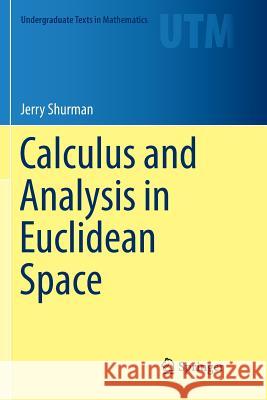Calculus and Analysis in Euclidean Space » książka
topmenu
Calculus and Analysis in Euclidean Space
ISBN-13: 9783319841304 / Angielski / Miękka / 2018 / 505 str.
Kategorie:
Kategorie BISAC:
Wydawca:
Springer
Seria wydawnicza:
Język:
Angielski
ISBN-13:
9783319841304
Rok wydania:
2018
Wydanie:
Softcover Repri
Ilość stron:
505
Waga:
0.72 kg
Wymiary:
23.39 x 15.6 x 2.67
Oprawa:
Miękka
Wolumenów:
01
Dodatkowe informacje:
Wydanie ilustrowane











